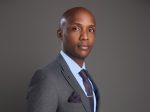Nedbank Namibia in collaboration with Future Media hosted marketers, communicators, and brand practitioners at the Nedbank Campus Sky Garden in Windhoek on 18 September to live stream the Nedbank Integrated Marketing Conference (IMC) 2025, which took place in Johannesburg, South Africa.
The IMC, widely regarded as Africa’s biggest marketing conference, attracted over 3,000 delegates in person and online and featured more than 20 African and international speakers under the theme – Marketing is Business. The theme underscored that marketing must move beyond building awareness and show measurable business outcomes.
At the live stream session, Nedbank Namibia Communications and Public Relations Manager, Selma Kaulinge, highlighted the importance of exposing the local industry to international best practice and new thinking:
‘Namibian businesses are the backbone of our economy, and their resilience and innovation are what drive our nation forward. We believe that empowering them with strategic insight and practical tools is essential for succeeding in a rapidly changing world.’
Head of Marketing at Future Media, Zellmari Brandt, echoed Kaulinge’ s sentiments by stating: ‘All the talks that we’ve heard so far have just been amazing. The topic for this year is marketing as business and today solidifies that marketing is extremely important and cutting back or moving away from marketing is probably not the best idea for businesses.’
At the live event in Johannesburg, the conference opened with the CEO of the IMC, Dale Hefer, who stressed that marketers need to adopt a business mindset, insisting that marketing’s role is no longer peripheral but must be central to overall business strategy.
On the day, Nedbank Group Chief Executive, Jason Quinn, also gave insights from a CEO perspective by reminding marketers that their work must be seen as central to business growth. He reflected on how marketing has evolved from being a back-office function concerned with advertisements to being a critical driver of trust, brand equity and long-term value.
Quinn cautioned against the common tendency for companies to cut marketing when times are tough, asking pointedly whether reducing visibility and customer engagement could ever truly solve business challenges.
Speakers on the day included Chief Marketing Officer at Aya Data from Ghana, Dr Gillian Hammah, who spoke on technology and its implications for marketing, highlighting the business decision facing marketers today. She argued that artificial intelligence should be seen as an assistant rather than a replacement. She explained that automation can free up time for marketers to focus on creativity, empathy and judgment, reminding the audience that the power of marketing lies in human insight enhanced by smart tools rather than in machines.
ENS Executive for Intellectual Property, Craig Shapiro, spoke on Intellectual Property (IP), warned that many marketing teams overlook intellectual property considerations until it is too late. He advised that trademarks, copyrights, and clear contracts must be built into campaigns from the outset, stating that the future success of brands depends on closer collaboration between marketers and legal specialists.
CEO of Redwood Analytics, Ryan Sauer, explained that marketers need to harness unified dashboards, cross-channel attribution and predictive models to make better decisions and prove return on investment. His contribution highlighted that analytics must be a career strength for marketers, not a specialist niche.
Chief Brand Officer at the British Broadcasting Cooperation, Charli Bassil, spoke on his experience with global brands including Absolut Vodka, Castle Lager and now the BBC to argue that brands must balance legacy with innovation. He urged marketers to listen more closely to their audiences, rise above the noise of hype cycles and remain true to their brand’s while also bringing empathy into data-driven decision-making. He reminded delegates that culture shapes brands, but equally, brands shape culture, and that marketers must carry that responsibility consciously.
For Namibia, the event created a valuable opportunity to share global perspectives with the local marketing community.










